On the eternity of classics, the relationship between musician and music: interview with tuba player Harutyun Hajinyan
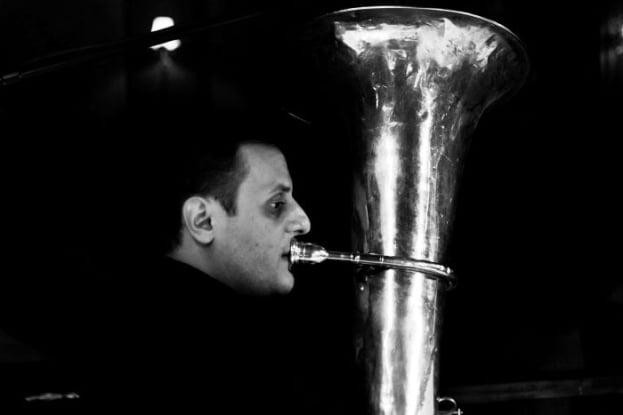
For me, the most important musical style in the history of music is classical, says 37-year-old tuba player Harutyun Hajinyan.
"Modern composers have incorporated classical orchestral techniques even in musical genres very different from classical music. Classical instruments continue to enhance the sonic palette of contemporary music, integrating string, brass and woodwind instruments to pop and rock in the music used in movies," the musician says and lists:
"Electric guitars have been the driving force behind rock, blues and many other genres. Piano, violin, cello, flute, brass and woodwind instruments are often used in modern music genres.
In electronic music, synthesizers and samplers reproduce the sounds of classical orchestral instruments. The use of string arrangements inspired by classical orchestra is common in modern pop and rock music.
A subgenre of chamber pop music that emerged in the 1960s and became popular in the 1990s, combines pop music with classical instruments such as strings and woodwinds.
Drum machines such as the Roland TR-808 and TR-909 have shaped electronic dance music (EDM) and hip-hop.
Pianos and various keyboard instruments have had a lasting impact on genres from classical to jazz to pop. They serve as versatile instruments for composition, arrangement, and solo performance.
Saxophones and trumpets, among other brass and woodwind instruments, have left their mark on modern music, helping to create outstanding brass and horn sections.
Modern string instruments, including violin, cello and double bass, can be heard in folk, rock and alternative music," says Harutyun.
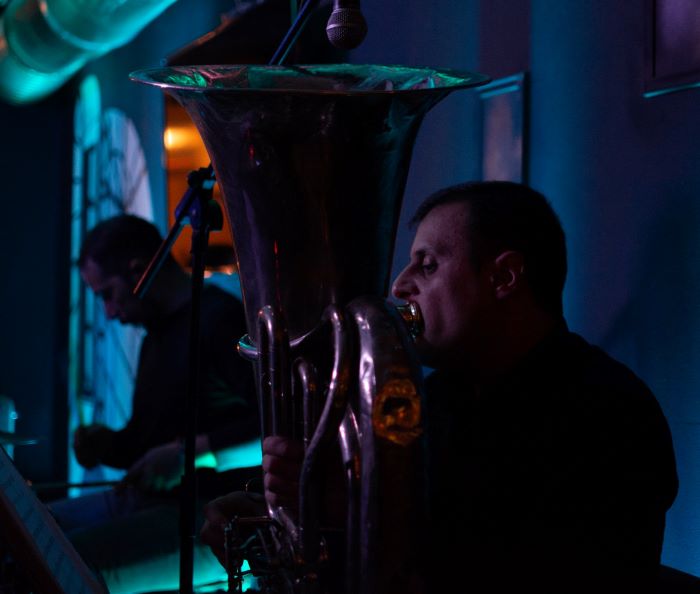
Harutyun Hajinyan graduated from the tuba class of the brass department of Yerevan Komitas State Conservatory. Since 2004 he has been working in the Yerevan State Wind Orchestra. Since 2012 he has been working in the Armenian State Symphony Orchestra. Since 2018, he has been teaching at the P.I. Tchaikovsky Music Secondary Vocational School in Yerevan. He has participated in music festivals and competitions and won many awards. Since 2019, he is the tuba player of Arm.Strong Brass band. We talked to Harutyun about his path, musical tastes, the relationship between musician and music.
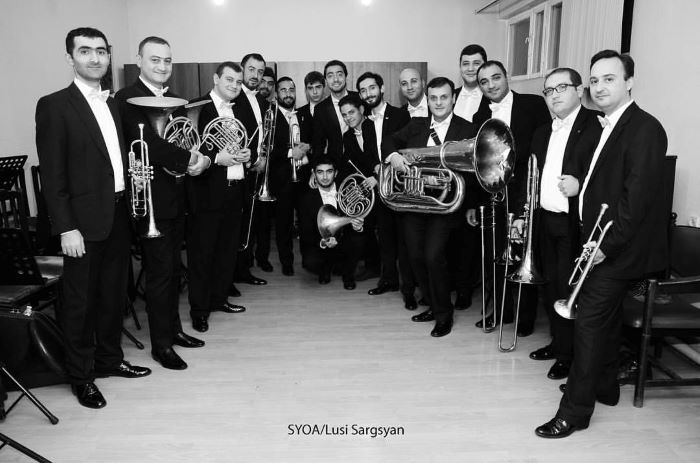
Harutyun, who or what inspired you to pursue music? What has had the greatest influence on your musical life and career?
I started playing the violin, tuba and singing when I was very young. Although no one in my family was a professional musician, we still sang together a lot, and my mother accompanied us on the piano. At the age of 7, I followed my parents' advice and entered one of the most famous music schools in our neighborhood – School No. 22 (later Avet Terteryan School). At first I didn't like playing the violin very much, because my fingers got tired when I tried to hold the strings of the violin. Nevertheless, I participated in various children's projects, for example, as a member of the Yuri Bakhshyan Children's Symphonic Pops Philharmonic Orchestra, participated in many concerts and tours in the festival competition "Armenia 1700", where I was awarded the main prize "Golden Eagle" and the honorable title "Laureate" by the Republican Council "Sevan Sports Society" of the RA Ministry of Culture and Sports. After that, I started to learn to play the tuba and it became an integral part of my life. Playing in different bands, being part of such a community and experiencing the amazing feeling of making music together at such a high level, I truly fell in love with the instrument and the world of music. I think that was the moment when this addiction was first born in me, the feeling that life would not be the same without music.
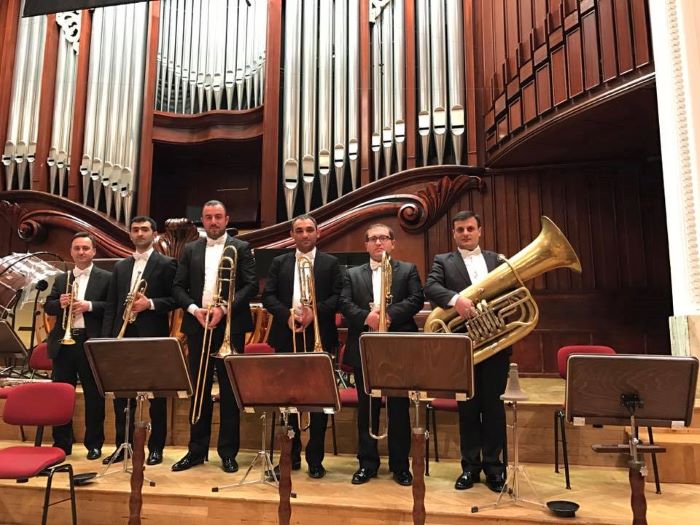
What have been the biggest challenges in your career?
I think it is important to find personal connection with music, to understand how to present it and how to communicate with people. If you stay as you are, i.e. do not lose your inner identity and try to find and communicate with a good emotional connection, it can be quite easy. Yes, and actually, it is quite a difficult job if only because, as a tuba player, you carry your instrument with you 24 hours a day, regardless of its size or weight. We have to be connected to our instrument: we have to recognize that it does not work and treat it with understanding. It is hard not to become too self-centered and think only of ourselves. It is a very difficult thing and we have to find ways to deal with it.
What inspires you offstage?
Finding inspiration is a key element of our profession. We give so much to the stage; we try to give our best every time that we really need inspiration. The sources of inspiration are different: going to concerts, watching different scenes, watching people move and thinking, "This music reminds me of a character in a film". I have a great time with other inspiring people, I listen to their stories, I get interested, we travel to different countries, we give concerts on the biggest stages in the world, such as the Warsaw Philharmonic, the Elbe Philharmonic Hall in Hamburg, the Real Madrid, the Mozart Hall in Zaragoza, the Grand Concert Hall of the Moscow Tchaikovsky Conservatory, Munich, Berlin, London's Barbican, Vienna, Prague, Tel Aviv and many other concert halls that open up every pore of our bodies to find inspiration again to perform various masterpieces by all the great composers. There are also always questions about why we do it this way, why we play at this tempo, why we spend time here, why we care about this word, etc. Often we do not just need to ask questions, we actually need to create, not just deliver, but in our own way, present the unique world of music to the audience.
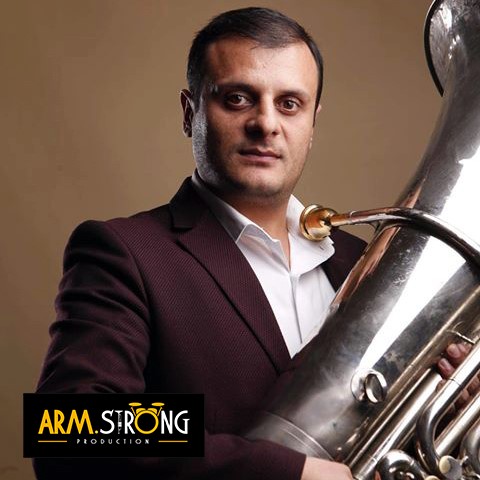
According to Harutyun Hajinyan, the possibilities of music are limitless. "It is capable of breaking stereotypes, uniting and bringing people together."
Follow NEWS.am STYLE on Facebook, Twitter and Instagram
- Those around Britney Spears claim she is ‘completely dysfunctional,’ on the verge of ruin Britney Spears has deleted her Instagram account, and insiders claim she is "totally dysfunctional." The star's Instagram account, which she regularly updated, disappeared just hours after she criticized her family...
- Nicole Kidman wears stunning gold Balenciaga dress at Lifetime Achievement Award ceremony At the ceremony, Kidman wore a gold Balenciaga dress with a dramatic long train that flowed behind her, almost like liquid gold. She completed the look with a gold watch, matching rings, and diamond hoop earrings...
- Who will lead LVMH luxury empire? Bernard Arnault evaluates his heirs Bernard Arnault likes to call LVMH a family business. The world's richest man calls the €400 billion luxury empire of which he is CEO, chairman and majority shareholder a "family business," and that's both a humble brag and a truth, The Economist writes....
- Gerard Depardieu placed in custody on sexual assault charges Gerard Depardieu has been placed in custody at a Paris police station on charges of sexually assaulting two female employees on movie sets...
- Legendary actress Shirley MacLaine turns 90, shares secret of her longevity On her 90th birthday, legendary actress Shirley MacLaine shared the secret of her longevity. McLain told PEOPLE she achieved this in large part due to her background in dance...
-
10:21, April 30
Those around Britney Spears claim she is ‘completely dysfunctional,’ on the verge of ruin -
20:35, April 29
Nicole Kidman wears stunning gold Balenciaga dress at Lifetime Achievement Award ceremony -
19:21, April 29
Who will lead LVMH luxury empire? Bernard Arnault evaluates his heirs -
16:34, April 29
Six Senses plans to open Six Senses Residences Dubai Marina, with focus on healthy living -
15:16, April 29
Gerard Depardieu placed in custody on sexual assault charges -
13:28, April 29
Legendary actress Shirley MacLaine turns 90, shares secret of her longevity -
12:34, April 29
The rich have their own quirks: New York billionaire’s extravagant wedding at foot of Egypt’s Great Pyramids -
11:59, April 29
Khloe Kardashian's personal life takes backseat -
11:06, April 29
Britney Spears: My family hurt me -
10:40, April 29
Kim Kardashian wears ‘mob wife aesthetic’ outfit for Lo Máximo Awards 2024 ceremony -
18:47, April 27
Wine story: JancisRobinson.com chief editor speaks about her wine adventure in Armenia (exclusive) -
21:16, April 26
Burj Al Arab and Atlantis, The Palm named world’s most Instagrammable hotels
All materials
- Archive























